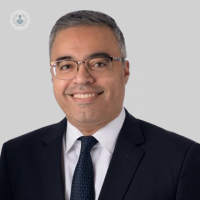Ask an expert: Adult ADHD: Part 2
Autore:In the second of a two part series, leading psychiatrist Dr Khaled Helmy discusses adult ADHD, explaining challenges associated with the condition and treatment options.
What challenges do adults with ADHD face, and how can they be addressed?
The presentation of ADHD is different from person to person, and it also differs according to the comorbidity or other mental disorder that they may have. ADHD in adult life rarely comes alone, it is often linked to other mental health disorders.
It is very common for adult ADHD to come with with anxiety and low mood. Due to impulsivity linked with the condition, those with adult ADHD may face drinking, gambling and substance abuse issues.

They often face challenges from the mental perspective. For example, from childhood, they know they can do things better and are very self-critical because they are very sensitive. As a result, they may develop issues related to self confidence, anxiety and low mood. Due to the disorganisation and inattentiveness of ADHD, they may also present with problems such as being late for appointments, or in some cases, they may arrive very early as a coping strategy, because they do not want to arrive late.
Furthermore, they may also have isssues related to relationships. Adults with ADHD are more prone to seperation than other people in the community. They are 2-4 times more likely to divorce than others, due to their impulsive decision making and are 4 times more likely to suffer from car and motocyclce accidents, again, due to impulsivity.
What are the treatments for adult ADHD, and how do they differ from childhood ADHD?
Treatment for adult ADHD is often complex because it depends if ADHD present with other conditions. When people present ADHD with anxiety and low mood or substance misuse, it is essential to evaluate the situation by a healthcare professional who will decide whether treatment will begin to address the adult ADHD or the other condition first.
One method of treating adult ADHD is with medication. We as medical proffesionals believe that in theory, the hypothesis that ADHD is caused by dopamine in short supply. There is both stimulant and non-stimulant medication available. Usually, modified stimulant medication is the first line of treatment.
Modifed released medication is extemely effective and safe and there is no risk of dependence on this medication. We prescribe it to the right people, with the right tools and start doing the health checks before prescribing this medication.
The second line of treatment is behaviour therapy. It is very important, because medication can’t adress all the problems. Some people think that if they take a pill, their isssues will be resolved, however, unfortunately, this is not the case.
Behaviour therapy can take many forms. Cognitive behaviour therapy is an important form of behaviour therapy, used to understand the links between your thoughts, emotions and behaviour. This is important not only for people with ADHD, but people with anxiety, low mood and possible obsessive disorders.
Adult ADHD coaching is another form of management for the condition. It can be used to help people with adult ADHD get better, to improve their disorganisational skills, to complete tasks, prevent procrastination and for them to stop being impulsive because impulsive behaviours can lead to loss.
How can individuals with adult ADHD manage their symptoms and improve their quality of life?
Lifestyle changes can play a role in helping those with adult ADHD. It is recommended that those with adult ADHD maintain a regular routine, eat three regular meals and both go to sleep and wake up at a specific time.
These factors, alongisde the appropriate amount of exercise result in the release of dopamine. Investing the right amount of time in dopamine can give you natural dopamine, which is valuable in everyday life.
Another beneficial concept for those with adult ADHD is mindfulness. It can aid attentiveness and focus. There are also some apps available which can help people to become more attentive and focused, and process their speed in doing things.
Furthermore, self-help or support groups can work very well for those with adult ADHD, helping them cope with their symptoms.
There are multiple self help groups which help adults with ADHD to learn practical tips from others with ADHD facing the same difficulties.
If you would like to speak to Dr Helmy about your ADHD, simply visit his Top Doctors profile today to book an appointment.


